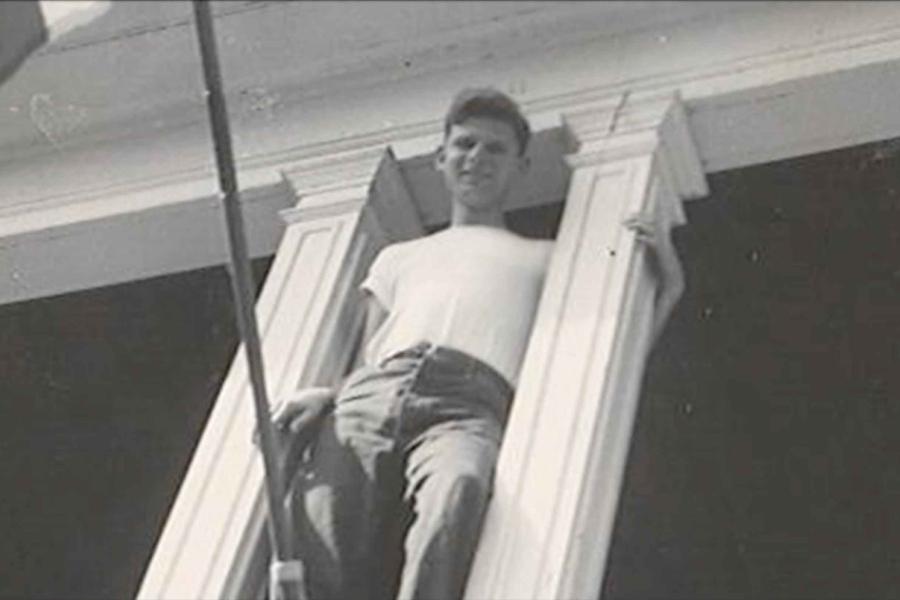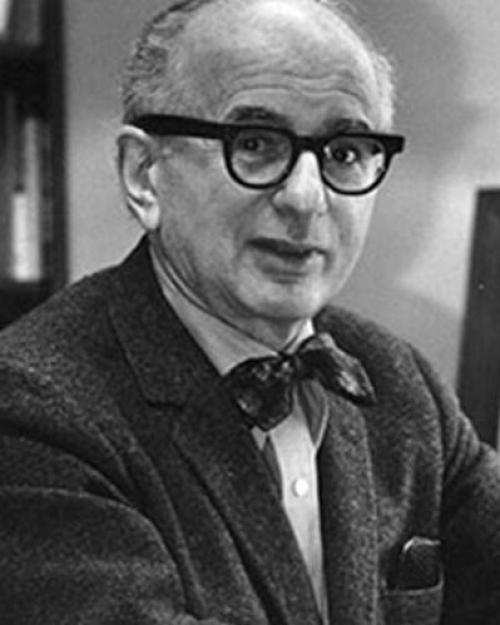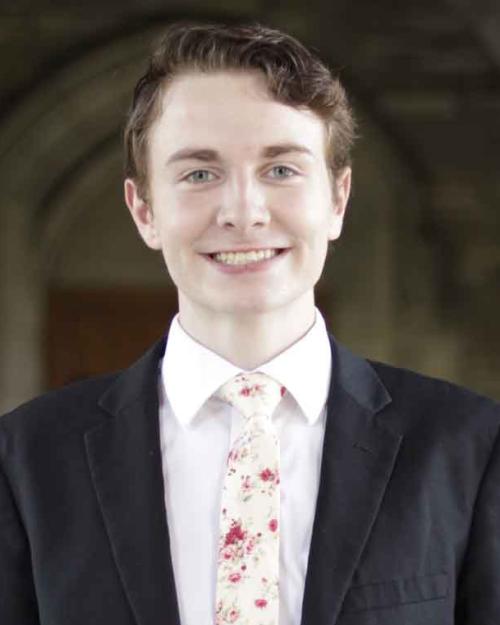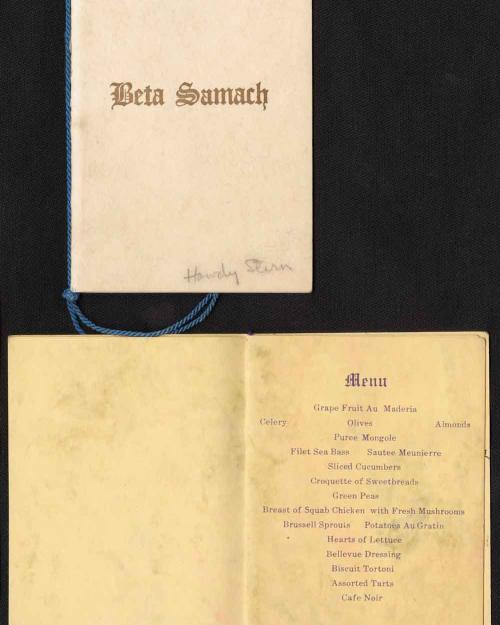Cornell’s founding as a nonsectarian university meant that from the start, students from all backgrounds and religions were welcomed to campus.
So, when Herb Neuman ’53 got off the bus with his suitcase and portable typewriter to begin his studies, he said he didn’t feel discrimination on campus. He remembers that freshman housing was more like a military barracks, all of the male students had to join ROTC and he was invited to join one of the nine Jewish fraternities (where he once met “Kiki” Bader, later to become Ruth Bader Ginsburg, at a party.)
As an engineering major who switched into the College of Arts & Sciences, Neuman said his Cornell experience wasn’t focused on his Jewish identity. “I was busy from 8 a.m. on, six days a week, between studying, ROTC and other activities,” he said. “There were some courses offered in Near Eastern studies and maybe in Hebrew, but I didn’t take them, and there was no Hillel House.”
Over the years, though, especially after his daughter Elena Neuman Lefkowitz ’88 attended Cornell and then became very involved in Cornell Hillel as an alumna, Neuman has become one of the strongest supporters of the Jewish Studies Program in A&S, which is marking its 50th anniversary this year with a host of events.
The events kick off this month with a March 14 lecture by Laura Arnold Liebman: “A Multiracial Jewish Family in Early America”
The celebration continues throughout this semester and into the fall with the following activities:
- March 23: Jessica Marglin: “The Shamama Case: Contesting Citizenship across the Modern Mediterranean” (part of the Jewish Histories of the Modern Middle East lecture series)
- April 12: Lior Sternfeld: “The Jews of Iran in the 21st Century” (part of the Jewish Histories of the Modern Middle East lecture series)
- April 19: Christopher Silver: “Recording History: Jews, Muslims, and Music across Twentieth-Century North Africa” (part of the Jewish Histories of the Modern Middle East lecture series)
- April 20: David Nirenberg: “How Can History Help us? The Example of Anti-Semitism”
- April 25-27: "Filming Jewish Life:" A film series at Cornell Cinema celebrating the 50th anniversary of Jewish studies at Cornell
- An exhibit opening this semester in the Rare and Manuscripts Collection at Carl A. Kroch Library.
- Sept. 7: A "Jewish Studies Celebration" at the Cornell Club in New York City.
- Oct. 23-24: “Biography in Jewish Studies,” a conference on campus featuring some of the country’s pre-eminent scholars in Jewish studies, including Derek Penslar, William Lee Frost Professor of Jewish History at Harvard; Yaacob Dweck, Professor of History and the Program in Judaic Studies at Princeton; and Mark S. Smith, the Helena Professor of Old Testament Literature and Exegesis at Princeton Theological Seminary
“Thanks to the faculty leadership of the Jewish studies program for the past half century, especially in the last decade with the previous directors Professors (Jonathan) Boyarin and (Deborah) Starr, Jewish studies at Cornell is in an excellent position to thrive for a long time to come and to be known nationally as an innovative and robust program,” said Jason Sion Mokhtarian, Herbert and Stephanie Neuman Associate Professor in Near Eastern studies and the current director. “The Jewish Studies Program now has faculty representing a wide range of core disciplines within Jewish studies, as well as a newly inaugurated major, which was just launched in 2023. In the past 50 years, Cornell’s program has built a very strong foundation upon which to continue to build. Given the interest among students and the continued support of our amazing alumni, the sky is the limit.”
The program has achieved many of the short-term goals described in its 2018 vision statement, auspiciously at the same time it celebrates its 50th year, he said.
Neuman and other alumni have been instrumental in the growth of the program, which now boasts four endowed faculty positions, 28 affiliated faculty from more than 15 departments, nearly 40 courses offered each year, scholarship funds available for undergraduate students, research funding for graduate students, a visiting speaker series and — beginning last fall — the opportunity for students to major in Jewish studies.
"My Jewish roots are very strong,” Neuman said, adding that his daughter continues to serve on the board of Cornell Hillel and is now leading the campaign to build a Cornell Hillel building at 722 University Avenue, which will serve as a home for Jewish life on campus. “Now, at Cornell, we have a going concern that I’m very proud of. Hopefully, in a number of years, we’ll also have a Hillel building, which is much needed.”
Faculty are quick to credit alumni for their support of the program through the Friends of Cornell Jewish Studies, established in 2017 and spearheaded by Eric ‘74 and Laurie Roth ’75. The Roths also made sure that Jewish history would be taught at Cornell by endowing a new chair in modern European Jewish history. Other core support has come from Bob Katz '69, Tom ’64 and Diann ’66 Mann and Fran ’60 and Bob ’60 Malina. Former Cornell President Hunter Rawlings and former Board of Trustees chair Harold Tanner also deserve much credit for the program’s growth, faculty say.
“It’s a challenge to be able to represent the range and depth of Jewish culture, texts and history adequately,” said Boyarin, Mann Professor of Modern Jewish Studies (A&S). “But with this support, and especially the tireless work of Eric and Laurie Roth, we have been able to provide the range and depth that we need at Cornell to teach Jewish studies as an interdisciplinary field in a serious way.”
JSP’s early roots
An important figure in the creation of the Jewish Studies program was Milton Konvitz, an attorney and ILR professor who became deeply involved with the Cornell Hillel Foundation. Konvitz secured a grant in 1957 for a professor to begin teaching Hebrew. The language hadn’t been taught at Cornell since 1932, according to “Jewish Life at Cornell,” a publication created by former Cornell Library Director Elaine Engst in 2006 for a celebration honoring 350 years of a Jewish presence in the United States and 140 years at Cornell.
In 1965, the university established a new Department of Semitic Languages and Literatures “to provide instruction in Hebrew, Aramaic and Arabic, to prepare undergrads for graduate study in Biblical, Semitic, Ancient and Modern Near Eastern Studies, and to enable graduate students to earn advanced degrees in the field,” Engst’s publication notes.
“Milton Konvitz made it his mission to bring courses related to Jewish studies to Cornell,” said Ross Brann, Milton R. Konvitz Professor of Judeo-Islamic Studies and a Stephen H. Weiss Presidential Fellow. (A&S) “He assembled a broad group of Jewish academics committed to the same idea – many of whom were scientists — to go to Cornell President Dale Corson.”
In 1968 more than 1,000 students petitioned the university for a Jewish studies program, and in 1969 nearly 100 faculty from the College of Arts and Sciences (then called the Arts College) sent a similar petition to the college’s Educational Policy Committee. The Jewish studies program began with courses in Hebrew in 1970 and was formally established in 1973.
The program today
The first endowed positions in Jewish studies were created in 1993 by the Manns and other alumni followed, endowing faculty lines and offering gifts to support the program.
The Manns have been members of the University Council and supporters of the Johnson Art Museum, Cornell University Library and the Division of Biological Sciences. They have been recognized by the Cornell Board of Trustees as Foremost Benefactors of the university.
Their gift to Jewish studies was sparked by discussions with their rabbi, when the Manns realized the program was an important and common interest they wanted to support, Thomas Mann said.
“One of the great gifts of the American university is the diversity of subjects you can study. They enable us to see the rest of the world and to try to understand how we might fit into it with our individual heritages,” Mann said. “The university should be the instrument for teaching all of us tolerance. Not too many things in our lives — even religion — are black or white.”
This semester, Hyrum Edwards ’25 signed up as the first Jewish studies major. Edwards isn’t Jewish, but when he describes first hearing about the new major, there was no doubt that he would sign up.
“I knew it was the right thing for me. I’ve always been interested in languages, religion and culture,” he said. “I knew going into Cornell that I wanted to learn more about the world.”
Classes in the Hebrew bible and Persian language his freshman year cemented his interest in those fields. He’s also been encouraged by many of his Jewish friends, who’ve invited him to Shabbat (Sabbath) services and whom he joined on a winter break trip to Israel sponsored by Cornell Hillel.
“I think many Americans grow up with a somewhat two-dimensional view of Jewish life, history and culture, not knowing what it’s like to be a Jew today,” he said. “I love that every time I take a Jewish studies class, my ability to understand the world becomes bigger.”
Mohktarian said the program will continue to grow and expand, with fundraising under way for a permanent endowment, efforts to increase enrollments in the Jewish studies major and minor and a new initiative to create a graduate Ph.D. minor in Jewish studies.
“The fact that we’ve had this explosion of growth along with a new major, it feels like we are at a crescendo moment,” he said. “But we still have a lot more work to do.”







